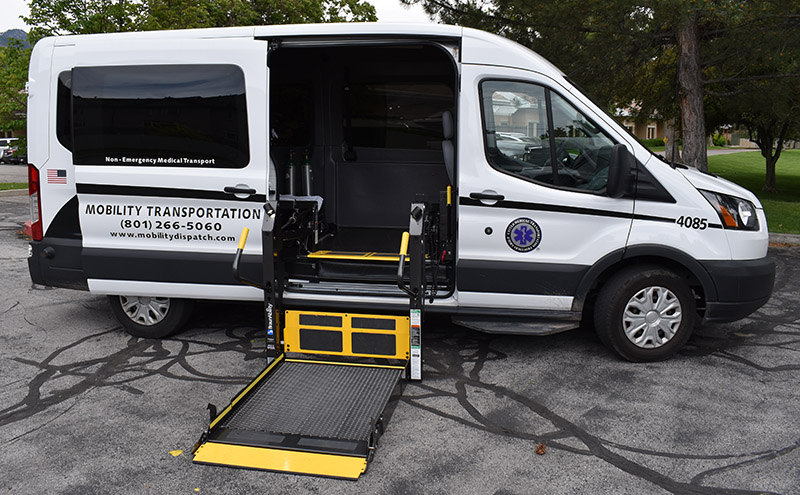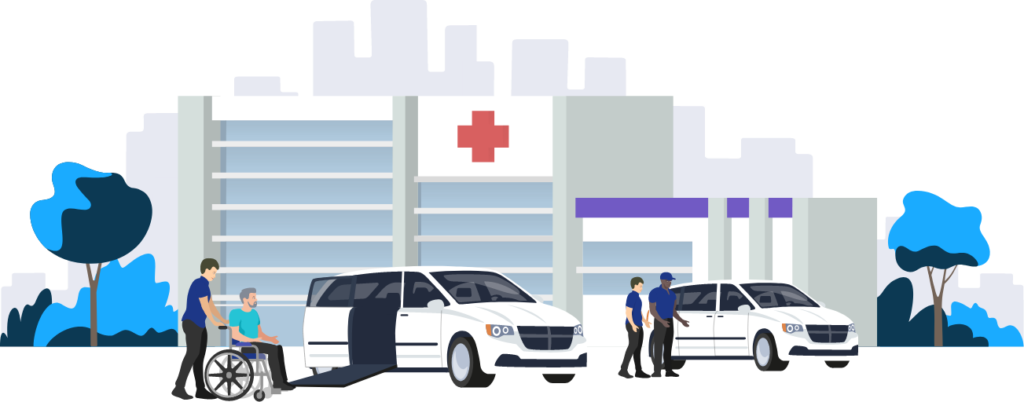Streamlined Medical Transportation: Making Medical Care Accessible for All
Streamlined Medical Transportation: Making Medical Care Accessible for All
Blog Article
Affordable and Accessible Medical Transportation Options for Every Situation
In the realm of health care, the capability to accessibility clinical services is vital, yet the difficulty of cost effective and obtainable transport can usually hinder people from obtaining needed treatment. While some may have the means to safeguard private transportation, several face barriers that make it challenging to reach medical consultations or centers. Nevertheless, the landscape of medical transport choices is evolving, supplying a variety of solutions tailored to different needs and conditions. By checking out specialized medical transportation services, community transport programs, ride-sharing and taxi solutions, non-emergency medical transportation, as well as public transit and paratransit choices, people can locate avenues that deal with their particular needs and guarantee they receive the care they require.
Specialized Medical Transportation Provider
Specialized medical transport solutions play a crucial duty in making certain secure and effective transportation for individuals needing specialized care throughout transit. These solutions accommodate individuals with distinct clinical needs, such as those requiring continuous surveillance, specific equipment, or clinical treatments during transportation. By using particularly equipped lorries and skilled clinical personnel, specialized clinical transportation services ensure that individuals receive the needed care while being transported between healthcare centers, homes, or various other areas.
One key element of specific clinical transport services is the focus on person convenience and security. Medical transportation groups are trained to deal with numerous medical conditions and emergencies that might occur throughout transportation, offering a higher degree of care than standard transport options. Furthermore, these solutions frequently use door-to-door assistance, decreasing the anxiety and discomfort that clients might experience throughout transfers.
Neighborhood Transport Programs
Having addressed the vital function of customized medical transportation services in ensuring risk-free and reliable transportation for people with one-of-a-kind clinical demands, the focus now shifts to examining Neighborhood Transport Programs - medical transportation. These programs play an essential duty in supplying budget-friendly and obtainable transport remedies for the basic populace, consisting of seniors, individuals with specials needs, and low-income families that might deal with difficulties in accessing traditional transport choices
Neighborhood Transport Programs encompass a series of services such as fixed-route buses, paratransit services, volunteer motorist programs, and ridesharing initiatives. These programs are commonly funded by city governments, charitable companies, or personal companies to make sure that individuals have reputable transport choices to reach medical visits, food store, social tasks, and various other important locations.
Ride-Sharing and Taxi Solutions

One of the key benefits of ride-sharing and taxi solutions is their availability. These solutions run 24/7, allowing individuals to take a trip to medical consultations, drug stores, or hospitals any time of the day. Furthermore, ride-sharing and taxi services accommodate people with movement obstacles by providing wheelchair-accessible lorries upon demand.
Additionally, ride-sharing and taxi solutions can be especially valuable for people residing in locations with minimal public transport options. By linking the space between home and healthcare facilities, these services play a critical duty in making sure that everybody has accessibility to necessary medical services.
Non-Emergency Medical Transportation

Non-Emergency Medical Transportation carriers generally employ qualified personnel who are experienced in assisting individuals with differing clinical demands. By using door-to-door service, Non-Emergency Medical Transport enhances the total access of medical care for people who might or else have a hard time to attend essential clinical visits.
Public Transportation and Paratransit Options
Public transit and paratransit alternatives use vital transportation solutions for individuals with differing wheelchair needs, guaranteeing accessibility to crucial locations such as medical centers and visits. Public transportation systems, including buses, trains, and trains, provide a cost-effective and commonly readily available mode of transport for individuals seeking to get to clinical appointments. These services are specifically advantageous for those that might not have access to personal automobiles or call for aid due to wheelchair challenges.
Paratransit services cater particularly to people with disabilities who are unable to make use of traditional mass transit. These solutions use door-to-door transport, suiting people with mobility devices, pedestrians, or other wheelchair help. Paratransit lorries are outfitted with attributes such as mobility device ramps and securement systems to make certain the secure and comfy transportation of passengers with differing flexibility needs.

Verdict

Report this page